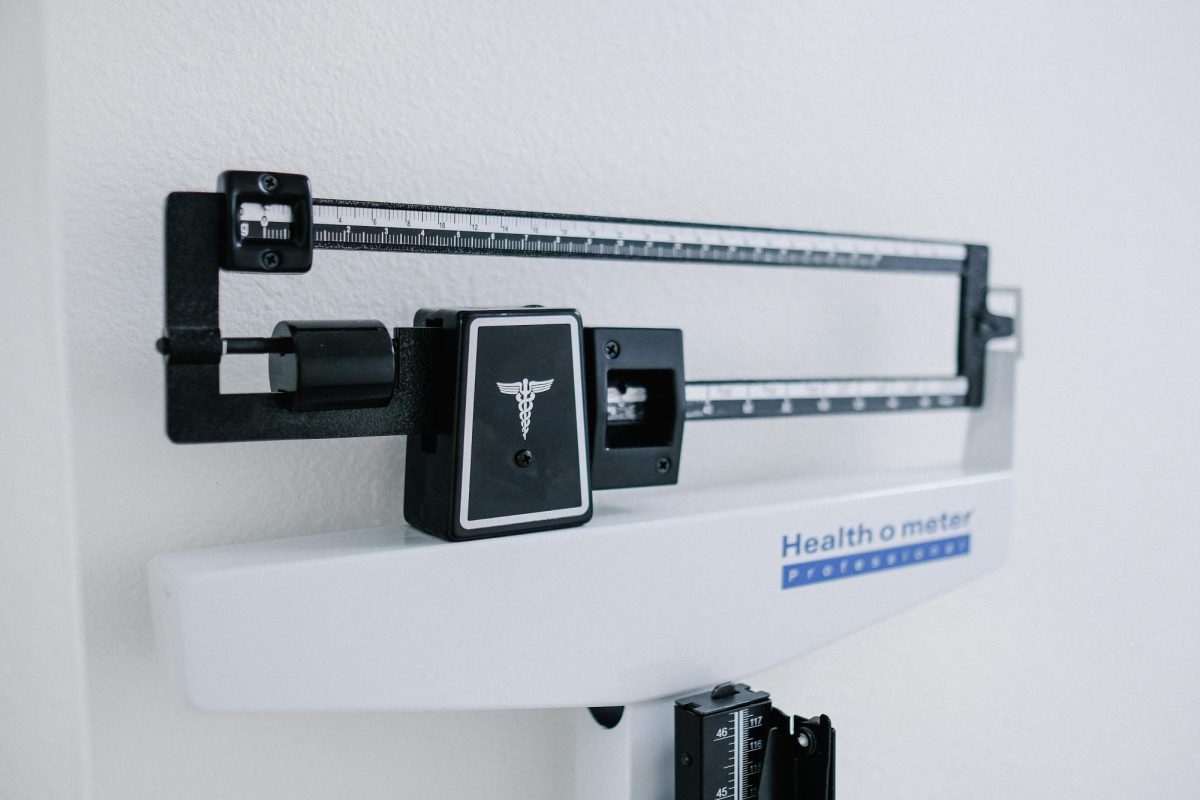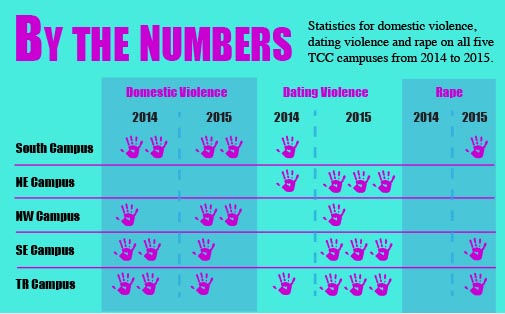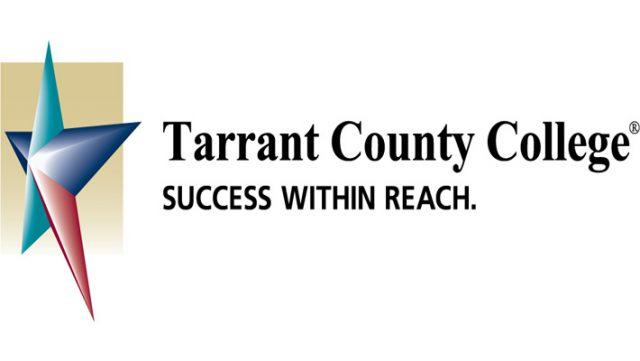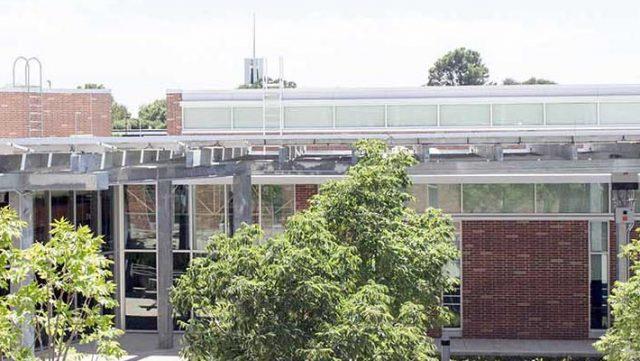By Jamil Oakford/ editor-in-chief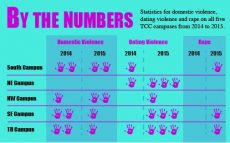
Three cases of rape, all of which occurred off of TCC campuses, were reported to TCC police in 2015, according to its annual security report released this week.
South, TR and SE campuses showed one rape each in the report mandated by a federal law known as the Clery Act. Assistant Chief Leigh Dietrich said the rapes didn’t occur on campus property.
“These were actual assault reports made to TCC police on each of these campuses,” she said.
If someone knows of a crime off campus, but that person decides to report it to campus police, the Clery Act still requires that the report is included in the college’s tally.
“In all three instances, these cases were referred to outside agencies,” Dietrich said.
The reports on SE and TR were referred to Fort Worth’s police department. The case on South was referred to Child Protective Services.
“We still offer victim’s assistance, and we still fill out the report and count it in our security report,” Dietrich said.
Dating violence seemed to rise or remain constant on certain campuses. NE saw a rise from one to three from 2014 to 2015. On SE, dating violence rose to three reports from zero in 2014. For NW, there was one report for 2015 matching the recorded statistic for 2014.
For TR and South, while they didn’t have any reports of dating violence, they both saw two reports of domestic violence each.
Defined in the Clery Act, domestic violence deals with victims of violence inflicted by a spouse or intimate partner, someone with whom they share a child in common or cohabitate with formerly or currently.
Dating violence is reserved for victims of violence inflicted by someone with whom the victim has been in a social, romantic or intimate relationship. It includes sexual and physical abuse as well as the threat of violence and abuse.
TCC Lt. David Herndon is one of the main people who compile the data for the report.
“The process to bring together all of the information in our Annual Security Report is a lengthy and labor-intensive process,” he said. “The ASR report contains three years of statistical data, and like most reports, it does not include the current year’s statistics.”
While they look through reports made on each campus as well as district-owned property, the team looks at outside law enforcement agencies to contribute to the data as well.
If TCC students traveled to a conference in Dallas, the college’s police department would have to contact Dallas’ police department to pull any reports that were possibly made while students were there.
“They’re not required by law to give it to us, but we have to ask,” he said.
Herndon said these numbers explain a lot for the department.
“This allows the department to review ongoing awareness programs for effectiveness, identify security measures that may need to be updated and determine what programs or measures are effective,” he said. “The department does look at ongoing crimes and trends frequently in an effort to decrease these crimes annually.”
Herndon hopes that students look at the report and can see how safe the college is. Of the approximately 50,000 students enrolled at TCC, the number of crimes reported across the district are relatively low.
“In reviewing the report, it is our belief students will discover that Tarrant County College is consistently ranked among the safest colleges,” he said.













